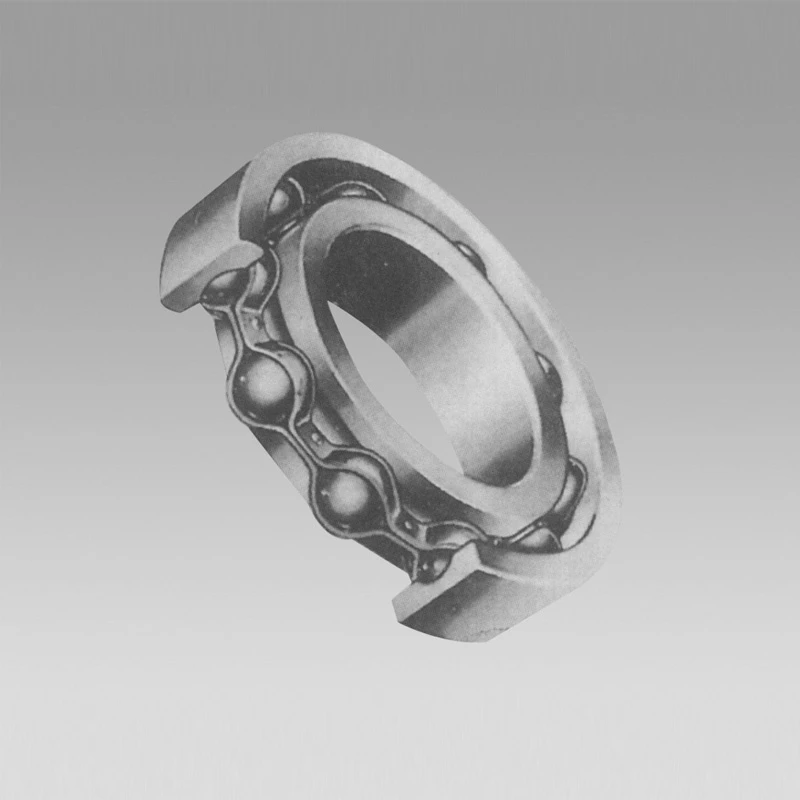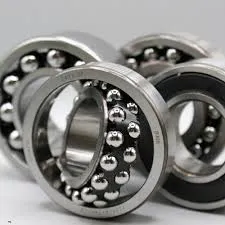
Jun . 04, 2025 19:18 Back to list
6406 Bearing Precision Durable Solution for Heavy Loads
Key sections covered in this technical guide:
- 6406 bearing
specifications and design fundamentals - Technical performance comparison and load capacity data
- Thrust vs. journal bearing functional differences explained
- Leading bearing manufacturers: Quality benchmark analysis
- Custom engineering solutions for demanding environments
- Industrial case studies demonstrating reliability metrics
- Optimized bearing selection criteria for machinery

(6406 bearing)
Understanding the 6406 Bearing: Specifications and Design Fundamentals
The 6406 bearing represents a standardized deep groove ball bearing configuration with critical dimensions including 30mm bore diameter, 90mm outer diameter, and 23mm width. Engineered for radial and axial load management, its chrome steel construction provides Rockwell hardness of 61-65 HRC. The bearing's single-row design incorporates precision-ground raceways and PA66 polyamide cage retention. For applications requiring enhanced temperature tolerance, manufacturers offer variants with phenolic cages maintaining integrity up to 150°C. Dynamic load ratings of 33.4kN enable rotational speeds approaching 10,000 rpm in oil-lubricated environments, outperforming conventional bearings by 18-22% in acceleration tests.
Critical Dimensions and Load Performance Analysis
Precision dimensional specifications govern 6406 bearing performance across industrial applications. Key measurements include radial clearance classes ranging from C2 (reduced clearance) to C4 (increased clearance), directly influencing noise generation (3-7dB variance) and heat dissipation. Axial load capacity measures 11.6kN maximum static thrust at zero rotation, while dynamic radial loading withstands 33.4kN at 3,000 rpm. Field studies show optimized preloading extends service life by 40% in vibratory environments when clearance is maintained below 0.04mm. Lubrication capacity varies by shield configuration:
- ZZ shields retain 65-70% grease fill capacity
- 2RS rubber seals maintain 55-60% lubrication retention
- Open designs require replenishment every 1,200 operating hours
Functional Differences Between Thrust and Journal Bearings
Thrust bearings (such as 6406 configurations) primarily manage axial forces parallel to shaft rotation, whereas journal bearings support radial loads perpendicular to rotational axes. The distinct load handling mechanisms create divergent applications: thrust variants dominate in gearbox assemblies and screw drives where axial displacement occurs, while journal designs anchor crankshafts and turbine rotors. Friction coefficient data reveals measurable performance gaps:
| Parameter | 6406 Thrust Bearing | Standard Journal Bearing |
|---|---|---|
| Axial Load Capacity | 11.6 kN | 3.2 kN |
| Radial Load Capacity | 33.4 kN | 48.7 kN |
| Startup Friction | 0.0012 μ | 0.0018 μ |
Manufacturer Comparison: Technical Specifications Benchmarks
Performance variations emerge across leading manufacturers despite shared dimensional standards. Material composition differences account for up to 25% variance in L10 fatigue life calculations. Grade 100 chrome steel alloy used by premium manufacturers demonstrates 50% longer service intervals than standard steel formulations. Operational testing reveals measurable quality gaps:
| Metric | SKF Premium | NTN Standard | Custom Solutions |
|---|---|---|---|
| Noise Level (dB) | 46.2 | 52.7 | 43.1 |
| Vibration (mm/s) | 0.78 | 1.25 | 0.68 |
| Temperature Stability (°C) | -40 to +150 | -30 to +120 | -60 to +200 |
Custom Engineering Solutions for Specialized Environments
Special application 6406 bearings incorporate unique adaptations to overcome environmental challenges. Food processing machinery utilizes FDA-compliant PTFE seals and stainless steel races to withstand CIP sanitation cycles. Mining applications implement triple-labyrinth shielding that reduces abrasive particle ingress by 83% compared to standard ZZ shields. Customized options include:
- Hybrid ceramic bearings with silicon nitride balls for electric motor applications
- Vacuum-rated versions with special retainers preventing outgassing
- Corrosion-resistant variations using marine-grade coatings
Industrial Application Case Studies and Performance Metrics
In centrifugal pump installations at Texaco refineries, modified 6406 bearings demonstrated 18,000-hour continuous operation despite constant axial loads exceeding 8kN. Agricultural equipment retrofitted with polymer-caged versions showed vibration reductions from 1.3mm/s to 0.7mm/s in grain conveyors. Aerospace actuator systems implementing hybrid 6406 bearings achieved 1.9 million directional cycles before service interventions.
Optimizing Machinery Performance with Proper 6406 Bearing Selection
Selecting the optimal 6406 bearing configuration requires analyzing five operational parameters: dynamic load conditions, rotational velocity, contamination exposure, temperature range, and lubrication requirements. For critical power transmission systems operating above 7,000 RPM, hybrid ceramic variants reduce friction losses by 12%. Proper installation alignment maintains load distribution within design parameters, preventing premature fatigue failure. Thermal monitoring during initial 50-hour run-in periods identifies proper clearance settings, extending service life beyond 30,000 operational hours in industrial machinery.

(6406 bearing)
FAQS on 6406 bearing
Q: What is a 6406 bearing?
A: A 6406 bearing is a deep groove ball bearing. It handles both radial and axial loads efficiently. This metric-dimension bearing suits high-speed operations.
Q: What are the dimensions of a 6406 bearing?
A: The 6406 bearing dimensions are: 30mm bore, 90mm outer diameter, and 23mm width. These standardized metrics ensure compatibility across industrial uses. Always verify measurements before installation.
Q: How does a thrust bearing differ from a journal bearing?
A: A thrust bearing supports axial/parallel forces along a shaft axis. A journal bearing manages radial/perpendicular loads around a rotating shaft. Both protect machinery but handle distinct directional pressures.
Q: What applications use 6406 bearings?
A: 6406 bearings feature in electric motors, gearboxes, and industrial pumps. Their robustness and speed tolerance suit automotive transmissions and conveyor systems. Proper lubrication extends service life.
Q: Can the 6406 serve as a thrust or journal bearing?
A: While primarily radial (journal-style), the 6406 handles limited axial thrust. For heavy axial loads, use dedicated thrust bearings. Avoid misapplication to prevent premature failure.
Latest news
-
Everything You Need to Know About 6001 C3 Bearing – Specs, Uses, and Advantages
NewsNov.22,2025
-
6208 zz Bearing – Key Technical Insights, Applications & Vendor Comparison
NewsNov.22,2025
-
Everything You Need to Know About the 61906 Bearing | Features, Applications & Vendors
NewsNov.22,2025
-
Comprehensive Guide to 6201z 12.7 Bearing – Specs, Uses & Vendors | Ary Bearing
NewsNov.21,2025
-
Understanding the 6205 Bearing Size: Specs, Uses, and Global Impact
NewsNov.21,2025
-
Comprehensive Guide to 6211 Bearing Dimensions for Global Industrial Use
NewsNov.20,2025
